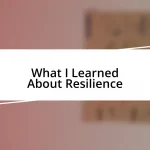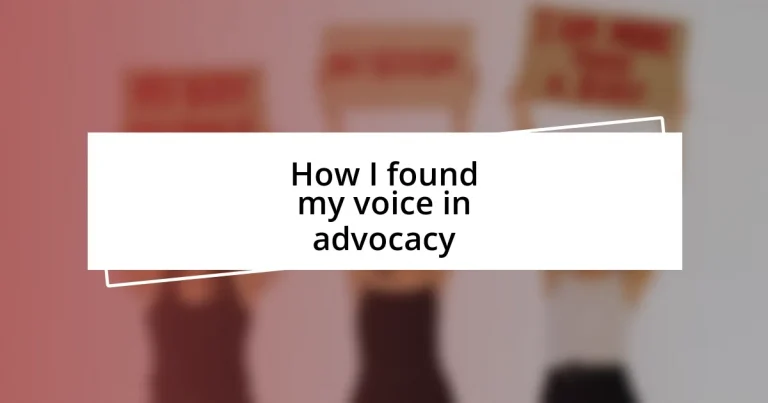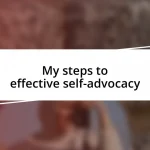Key takeaways:
- Advocacy transforms personal stories into catalysts for change and fosters a sense of community among individuals facing similar challenges.
- Identifying core personal values like compassion, justice, and empowerment is essential for refining one’s voice in advocacy.
- Building confidence in public speaking involves practice, engaging with the audience, and sharing personal stories to create authenticity.
- Supportive communities and networks enhance advocacy efforts, offering collaboration, mentorship, and motivation for collective action.
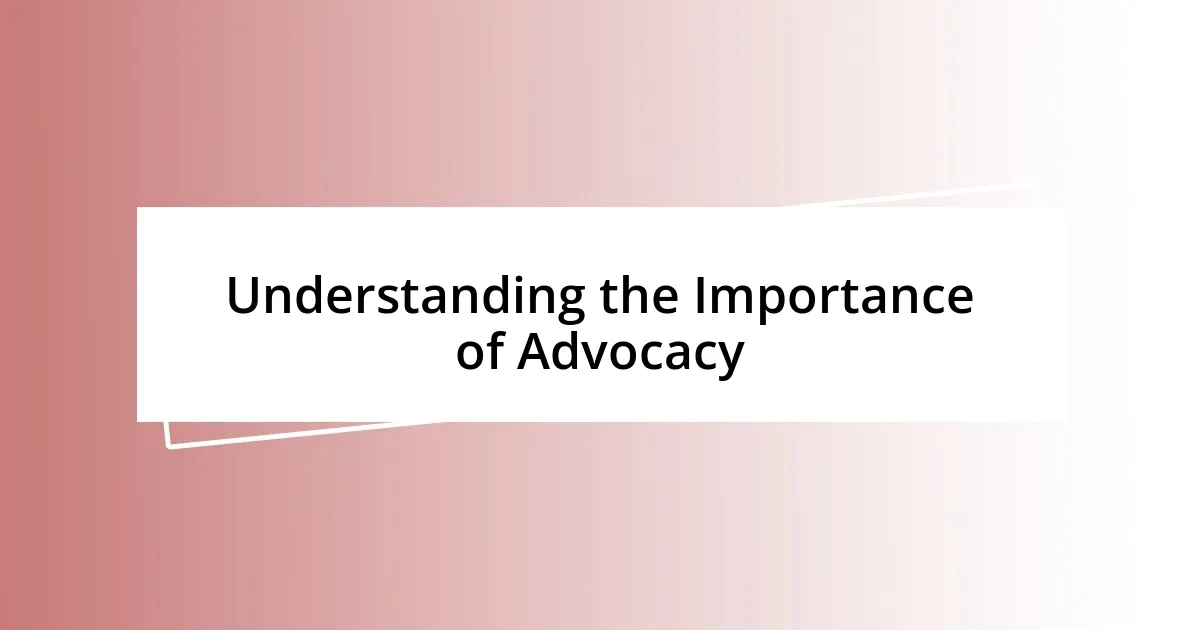
Understanding the Importance of Advocacy
Advocacy serves as a powerful tool for amplifying voices that often go unheard. I vividly remember attending a community meeting where a single parent spoke about the struggles of balancing work and childcare. Her raw emotion resonated with me deeply—it was a pivotal moment when I realized how advocacy can transform personal stories into catalysts for change.
Understanding advocacy is vital because it connects individuals to broader societal issues. When I first learned about the impact of systemic inequalities, I felt a surge of urgency to act. How could I stand by and let injustices continue unchecked? This question fueled my commitment to advocate for those who might not have the platform to share their experiences.
Moreover, advocacy fosters a sense of community and belonging among individuals facing similar challenges. I recall attending workshops where we shared our journeys; it felt therapeutic to know that I wasn’t alone. In those moments, I understood that when we come together with shared purposes, we amplify our influence and inspire collective action.
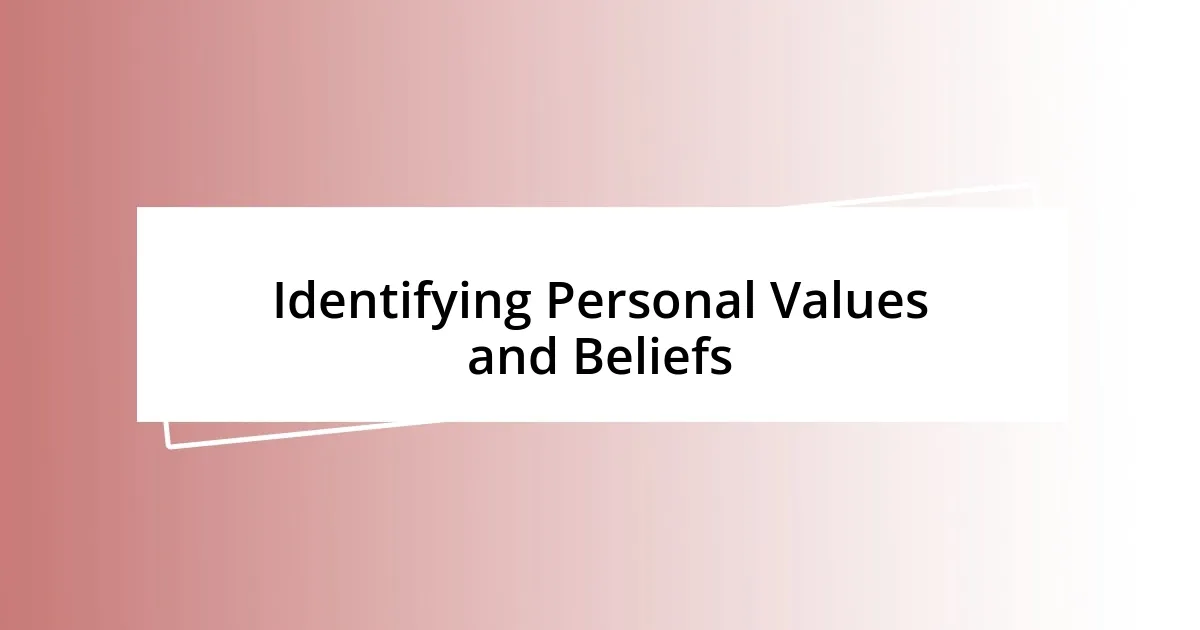
Identifying Personal Values and Beliefs
Identifying personal values and beliefs is an essential first step in finding your voice in advocacy. I remember sitting down one afternoon, reflecting on what truly mattered to me. It was surprising how my core values—compassion, justice, and empowerment—became clearer as I let myself explore my feelings without judgment. This introspection not only guided my advocacy journey but also boosted my confidence when speaking up for the issues I cared about.
- Compassion: Feeling a connection to the struggles of others drives my desire to support them.
- Justice: A strong sense of fairness pushes me to challenge inequalities I see around me.
- Empowerment: I believe in uplifting others, helping them find and share their voices, just as I discovered mine.
Each of these values serves as a compass, guiding my actions and choices in advocacy as I continue to refine my voice.
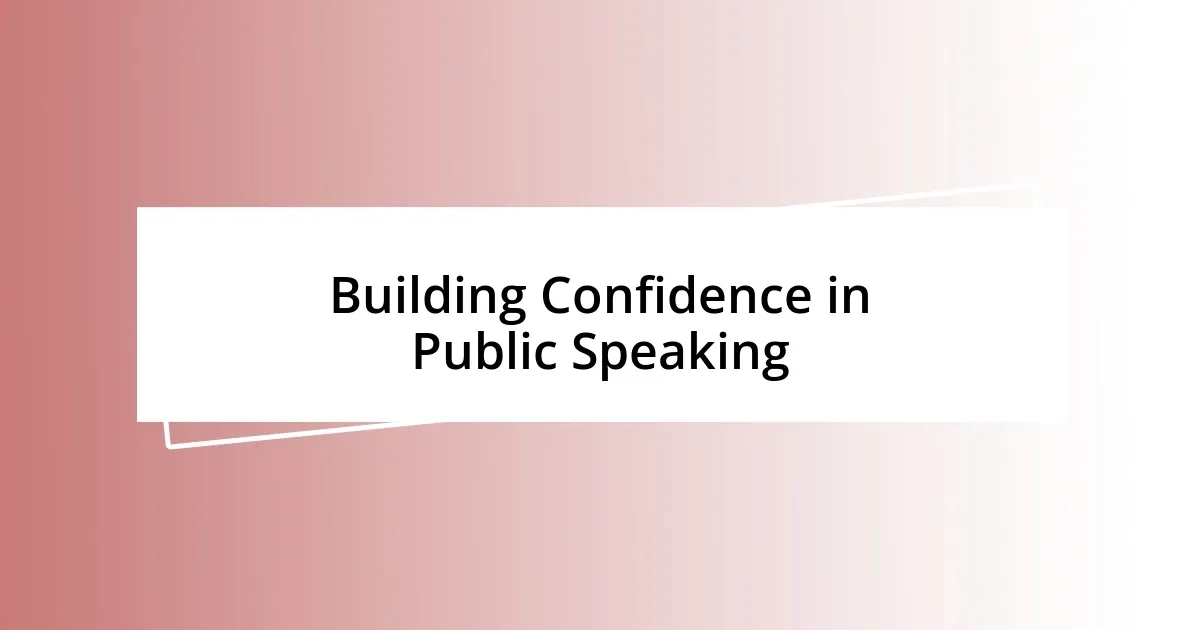
Building Confidence in Public Speaking
Building confidence in public speaking can often feel like an uphill battle, but it’s a journey worth taking. I remember my first public speaking engagement—it was a local advocacy event, and my hands were shaking as I approached the microphone. I had prepared extensively, yet the nerves almost took over. What I found helpful was practicing in front of small, supportive groups first. Each time I spoke, I could feel a little more confidence growing, helping me gradually embrace the spotlight.
Engaging with the audience also plays a crucial role in building confidence. I learned to view public speaking not just as delivering a message but as a conversation with fellow advocates. One time, during a community forum, I made eye contact with a few attendees, and their encouraging nods made all the difference. It reminded me that my words mattered. Shifting my focus from fear to connection gave me the courage to speak more authentically.
It’s fascinating how experience shapes our confidence. Initially, I relied heavily on notes, feeling anxious if I strayed from my script. Over time, I started sharing personal stories related to my advocacy. The authenticity of my message sparked connections, and before I knew it, my nerves transformed into excitement. I discovered that being genuine resonates more than perfect delivery.
| Approach | Effect on Confidence |
|---|---|
| Practicing in small groups | Gradual comfort with speaking |
| Engaging with the audience | Building a connection and reducing anxiety |
| Sharing personal stories | Creating authenticity that resonates |
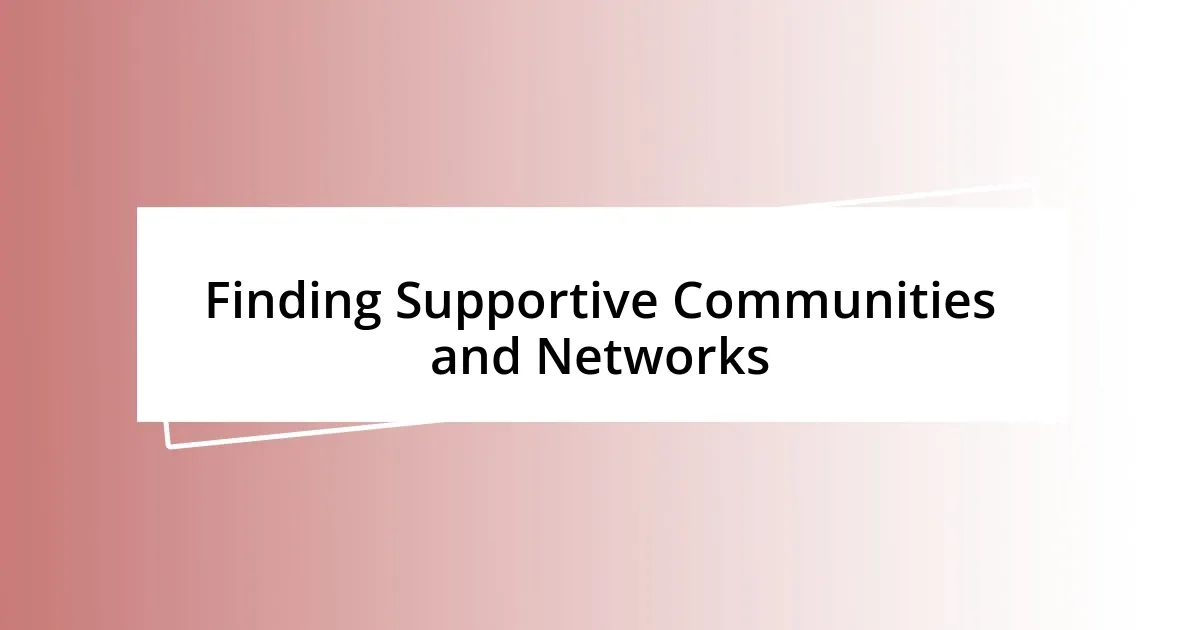
Finding Supportive Communities and Networks
Finding supportive communities and networks has been transformative for my advocacy journey. Early on, I was unsure where to turn for guidance. Fortunately, I discovered a local advocacy group that welcomed newcomers with open arms. Engaging with fellow advocates who shared my interests was not only reassuring, but it also allowed me to learn from their experiences. Has there ever been a moment where you felt an instant connection? I can still recall the warmth of the first group meeting I attended. Their shared stories made me realize I wasn’t alone.
As I immersed myself in these networks, I began to see the power of collaboration and support. I remember collaborating on a campaign with someone I met at one of these gatherings. Our differing perspectives enriched the project, and it was empowering to combine our voices for a common cause. It became clear how essential these communities are in amplifying our individual efforts. Finding others who are passionate about the same issues not only provides motivation but also ignites creativity in our advocacy approaches.
Building relationships with mentors in these circles was equally crucial. One mentor I connected with had years of experience and offered invaluable insights. I often wonder, where would I be without their guidance? Their encouragement led me to pursue initiatives I might not have attempted alone. It highlighted the importance of leaning on each other for growth. These networks are more than just connections; they’re lifelines that cultivate resilience and growth, reminding me that together, we truly can make a difference.
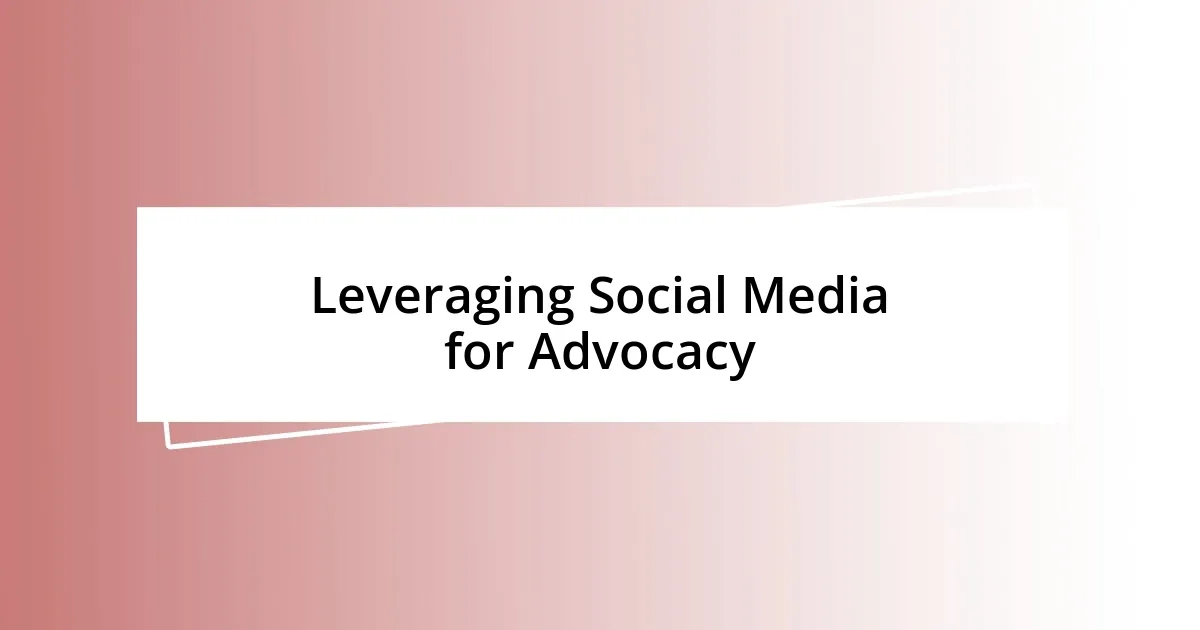
Leveraging Social Media for Advocacy
Leveraging social media for advocacy opened up a whole new world for me. I vividly remember the first time I shared a post regarding an issue I was passionate about. The support that came pouring in from friends and strangers alike was exhilarating! It made me realize that my voice could reach far beyond my immediate circle. Social media transformed into a powerful platform where I could connect, inform, and mobilize others, turning passive participation into active engagement.
One challenge I faced was learning to navigate the sea of information bombarding social media users every day. Initially, crafting impactful posts felt overwhelming. Over time, I discovered that authenticity cuts through the noise. I learned to share my own experiences, with a mix of vulnerability and passion, which resonated more deeply than any perfect statistic could. It’s a question I ask myself often: how can I truly connect with others online? Focusing on real stories provided clarity, encouraging dialogue and inspiring others to share their experiences too.
I noticed that collaboration with fellow advocates on social media amplified our collective voice. I once hosted a virtual event with a group of friends, and we branded it to reflect our shared mission. The buzz this created was phenomenal! I was astounded by how many people joined in, eager to contribute their thoughts and stories. It reminded me that social media is more than just a platform; it’s a community of passionate individuals coming together for a cause. The collective energy we created felt electric, and it reinforced my belief in the power of unity in advocacy.
